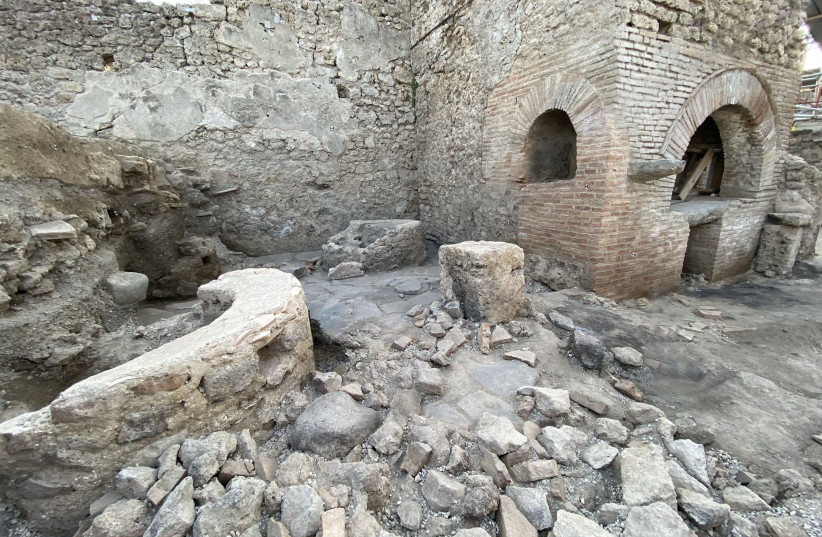Dining hall with Trojan War decorations uncovered in Pompeii
A black-walled dining hall with 2,000-year-old paintings inspired by the Trojan War has been discovered during excavations at the Roman city of Pompeii, authorities said on Thursday.
The size of the room – about 15 meters long and 6 meters wide – the quality of the frescoes and mosaics from the time of Emperor Augustus, and the choice of characters suggest it was used for banquets, Pompeii Archaeological Park said.
“The walls were painted black to prevent the smoke from the oil lamps being seen on the walls,” Gabriel Zuchtriegel, head of the park, said.
“People would meet to dine after sunset, and the flickering light of the lamps had the effect of making the images appear animated, especially after a few glasses of good Campanian wine.”
Pompeii and the surrounding countryside was submerged by volcanic ash when Mount Vesuvius exploded in AD 79, killing thousands of Romans who had no idea they were living beneath one of Europe’s biggest volcanoes.
New burst of archaeological activity
The site has seen a burst of archaeological activity aimed at halting years of decay and neglect, largely thanks to a 105-million-euro ($112 million) European Union-funded project.

The dominant theme of the newly discovered paintings is heroism and fate.
One fresco depicts Paris and Helen, whose love affair caused the Trojan War, according to classical accounts. Another one shows doomed prophetess Cassandra and the Greco-Roman god Apollo.
According to Greek mythology, Cassandra predicted the Trojan War after receiving the gift of foresight from Apollo, but no-one believed her. This was because of a curse Apollo put upon her for refusing to give herself to him.





Comments are closed.